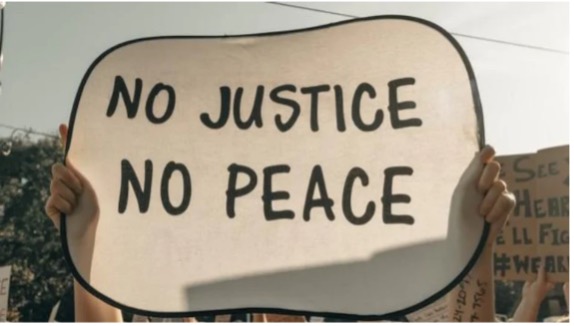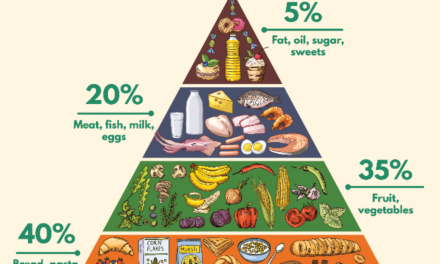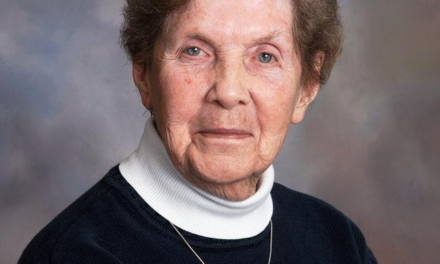Madison Thibodeau ’21, Editor in Chief

The 13th Amendment to the U.S. Constitution put an end to slavery and involuntary servitude in 1865, but it did not put an end to social injustices and inequality.
Black Lives Matter movement continues to spark action across the globe and prompt urgent conversations about racism, it is crucial to remember how necessary it is to become more aware of the problems within our society. The recent tragic murders of Ahmad Arbery, George Floyd, and Breonna Taylor puts a deep emphasis on the injustices that tragically still exist in America, even in the year 2021.
While progress has been made, the cancer of institutional and systemic racism is still explicit as the struggle for equal rights always seems like an endless battle. Everything from criminal justice reform to police brutality are just many of the relevant and galvanizing topics that have generated some essential films.
As protests and rallies against racial injustice sweep our country, there is heightened public awareness about racial discrimination and inequality in America. Many people are looking for ways to educate themselves about these issues. It is imperative that you understand the context behind these flashpoints and absorb the importance of this moment in our history.
But where do you start to fill in your knowledge gaps and broaden your understanding of what is going on? Films can be effective in bringing meaningful stories to life and offer an easy way to help us start addressing these complicated issues.
And, like many other big issues, it is something that comes up again and again in the films, from inspiring stories about unforgettable leaders to wrenching documentaries about civil rights. Society can use social justice films like Selma, Get Out, I Am Not Your Negro, The Hate U Give, Just Mercy, Fruitvale Station, etc. to begin or continue essential conversations about race. One of the most combative ways to empower change for the better is through the visual medium. If you cannot make it to a protest, at least try to watch timely films now so we can pave the way for a more peaceful and sustainable country, society, and world.
These films offer big-picture ideas with key messages, like the importance of diversity, tolerance, and acceptance. They provide excellent jumping-off points to further inform yourself and pursue a deeper understanding of these obstacles and problems. And, to help understand this idea – the films below deal with characters, situations, and encounters that delve into prejudice and systemic racial issues, make them great conversation starters.Just Mercy (2019) is must-see film that has helped shape the conversation around capital punishment in the U.S. The film highlights the racial bias that permeates our criminal justice system. Based on the bestselling book by attorney Bryan Stevenson, founder of the Equal Justice Initiative (EJI), and his real-life experiences,
this intense drama focuses on Stevenson (Michael B. Jordan), who is a defense attorney working to appeal the wrongful conviction of Walter McMillian (Jamie Foxx), a Black man who was sentenced to death for a crime he did not commit.
Stevenson’s book of the same name goes much deeper into his efforts to change sentencing practices, particularly for teens and children, and those with mental health problems. If you are in the Montgomery, AL area, the EJI’s Legacy Museum and National Memorial for Peace and Justice offers visceral and impactful displays of the history of slavery and racism in America, including the enslavement of African Americans, racial lynching, segregation, and racial bias.

The Hate U Give (2018) is labeled a teen film, it offers one of the most authentic portrayals of police brutality in pop culture. Like the award-winning book it is based on, this drama about a Black teen named Starr Carter (Amandla Stenberg) who witnesses the fatal police shooting of a close friend deals frankly and powerfully with race and racism. The film shows her grappling with the difficulties of being a Black teenager in a predominantly white area, and the feeling of belonging to one world while living in
another. How she stands up for justice is inspiring.
Lisa (Regina Hall) in the film comments that “white folks want diversity but not too much diversity,” which touches on a subtle bias against living in highly diverse communities or communities that are resistant to organizations’ effort to promote diversity. However, there are many studies that prove the positive impact diversity will have on your life and environment.

Selma (2014) is an Oscar-nominated historical film depicting a significant period in Martin Luther King’s life, when he planned and led the historic march from Selma to Montgomery, AL to secure equal voting rights for African Americans. The first attempt at this march led to brutal police violence against peaceful demonstrators. This event, known as Bloody Sunday, generated anger across the nation and prompted President Lyndon B. Johnson to push the Voting Rights Act through Congress. As recent events have shown, many Americans are still fighting against racism. This film is a reminder of how far we have come as a nation and how much further we have to go. The Hutchins Center for African and African American Research recently unveiled a free online curriculum to bring the voting-rights movement to life.

Get Out (2017) is Jordan Peele’s directorial debut that turns white supremacy into a horror flick. The film’s premise is what happens when a Black man goes to visit his white girlfriend’s seemingly liberal parents, though they have a very twisted underlying motive. The film is the personification of the sentiment “I wish people loved Black people as much as they love Black culture.”
Get Out addresses a more subtle form of covert racism and discrimination, which is often concealed in the fabric of our society, hiding behind the facade of politeness. Fighting this means learning to become an antiracist, and is the topic of a bestselling book by Ibram X. Kendi.

Fruitvale Station (2013) tells the true story of Oscar Grant III (Michael B. Jordan), a young man who was killed in 2009 by a police officer in Oakland, CA. It opens with the actual footage of Grant and his friends being detained by the BART police, who oversee the Bay Area’s public transit system, and goes on to portray the last day of Grant’s life through flashbacks. It offers a window into a real-life example of racial discrimination within law enforcement.
The film depicts how lack of opportunity, routine incarceration, and racism conspire to devalue the lives of young Black men in America. Some studies have suggested that increasing community connections between police and young Black men could lead to a reduction in violent encounters.

I Am Not Your Negro (2017) is Raoul Peck’s extraordinary Oscar-nominated documentary is a powerful political statement and a profound look into James Baldwin’s mind. Based on what would have been Baldwin’s next project “Remember This House,” an unfinished 30-page manuscript, I Am Not Your Negro combines Baldwin’s reflections on the lives and assassinations of Medgar Ever, Malcolm X, and Martin Luther King, and connects it with America’s current events such as the #BlackLivesMatter movement. An impactful documentary which conveys how relevant it is to look at the past in order to understand the present.

Films are capable of evoking emotion, introducing you to new truths, and pushing the boundaries of imagination. The best films will hold up a mirror displaying the extent of human cruelty and ignorance and signal hope and the need for transformation.
There are several films on racism that serve as a necessary antidote to the blatant violation of human rights, which is woven into the very fabric of American society today. While they may not be able to bring large-scale reforms and magically remove discrimination from the country, they still create awareness and give a voice to the struggles of those that find it difficult to be heard. The purpose is simple: We must shed our apathy and prompt ourselves into action in order to change the reality that confronts Black people. Like other forms of literature, films provide us with the means to amplify these voices beyond the ongoing protests and embed them into the very fabric of our culture and media. These films dealing with the subject of racism and oppression can contribute to the conversation on establishing a new order based on social justice, empathy, love, and acceptance. As a medium, film encompasses the entire gamut of human emotions and will continue to be a powerful tool for disseminating the stories of our past, present, and future.
As uncomfortable as these topics may be, and as uncomfortable as it might be to see someone being murdered on film or to see someone in an unfair situation. It is needed for everyone, especially when we think about allyship, to understand what is happening in America, what is happening around the world, and how you can be an advocate as an ally for a change in our system. If you cannot swallow the uncomfortable and downright horrifying truths depicted in these films, then you must try and contribute toward building a world where minorities are no longer subject to hate, punishment, and emotional distress.






